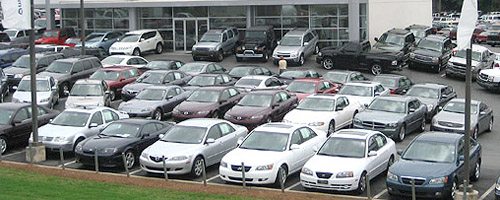Like many countries around the world, Kenya has embraced the net and many of its people rely on online shopping for their supply of essential goods – cars included. They are viewed online on various Japanese car exporters’ sites, purchased, and imported in Kenya.
Generally the process of buying a car in Japan and getting it into Kenya takes between 5-8 weeks depending on the source.
The attraction of importing from Japan is evident – highly competitive prices as well as quality and reliability associated with Japanese used cars. However, market saturation and competition have eroded painfully into profitability, and the sheer popularity of Japanese used car imports has unfortunately given rise to heartless criminals who are happy to fleece their victims of tens of thousands of dollars. Despite the regularity with which this happens, many cases often go unreported, allowing criminals to continue with their fraudulent operation.
To begin with, visit JEMVIC’s official website to find a list of accredited car dealers in Japan. To further ensure you won’t be fooled, confirm with the Nairobi-based Japanese Embassy, which supports Kenyans looking to import variables from Japan. Also, shipping companies will tell you that they are not liable for any losses during transportation, so be sure to insure your investment with a reputable company.
Here are additional some tips on how to protect yourself from falling victim when buying a Japanese used car online:
- Buy from known and trusted companies. If your friends and family received their vehicle safely from one company, there is no reason why you wouldn’t too.
- Buy from a portal website where a third-party will store your money safely until you receive your vehicle. CardealPage is one such company. Many car exporters list their vehicles on their site, but you are completely safe because they will safeguard your money, and only forward it to the Seller when you receive the same vehicle you ordered.
- Make sure you can communicate with them on landline, and not just cell phones or emails. Criminals make themselves as untraceable as possible, so they will only give you cell phone numbers and not landline. All cell phone numbers start with +81-80 and +81-90. If the numbers doesn’t start with the above, ask for a landline number.
- Ask for more photos. If the vehicle is really theirs, they should be able to send you more photos upon request. Ask for a close-up photo of the engine number, for example. It might be bothersome to them because it will take time and even labor fee, but better to be safe than sorry.
The above should be enough to protect yourself from criminals, but you can also go one step further to make sure that you are getting the product in the condition you were promised:
- Ask for auction sheet. The Seller might say that the vehicle is in premium condition, but how can you be sure? Most exporters source their vehicles from online auction houses, and auction sheet gives true descriptions about the vehicle. Look for the “grade” of the car. Avoid grade “2”, as it is basically a write-off. “3.5” is ok, and “4” “4.5” is great. “5” would be fantastic, but these are not so easy to find because these are reserved for vehicles with very low mileage and mint condition. Grade “A”, “R”, and “RA” are repair history cars.
- Request for odometer verification inspection. All vehicles to be registered in Kenya must be inspected through an official channel in Japan before export to ensure that they are road-worthy. However, you can also request for an odometer inspection to make sure that the mileage hasn’t been rewound. You will have to pay extra for this service, but it is well-worth it.








